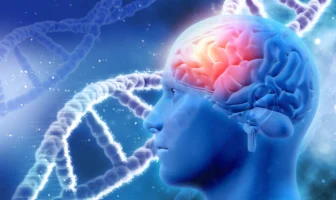
The presence of stigma and silence regarding mental illness has rendered it, in many cultures, a social concern; however, the current activism and growing awareness are proving that it can be turned into a global movement.
To break that silence is not to mention an individual health problem, but to speak of it is a social responsibility toward building and nurturing inclusive, informed, and compassionate communities.
Mental health encompasses emotional well-being, psychological functioning, and social wellbeing, and gives rise to feelings, thoughts, and behaviors.
Bridging the treatment gap, therefore, can ensure that mental and physical health receive their fair share of priority through avenues like dialogue, sign-naming, risk identification, and early intervention.
From Silence to Conversation: The Signs and Symptoms of Mental Illness
Every one of us has their own experience of mental illness; very few may even know that such an experience is really an illness.
There can be no denying the issue of mental illness; it is such a broad spectrum of symptoms. These symptoms can be:
- Emotional symptoms: Overpowering sad mood, hopelessness, excessive worrying or feeling worthless for extended periods, burning out or extreme anxiety, and feelings.
- Behavioral symptoms: Escaping into social withdrawal, irresponsible behaviour, loss of interest in previously pleasurable activities, and using drugs to cope with one’s problems.
- Cognitive symptoms: Impairment in one’s ability to concentrate and to make decisions, or the presence of a fixed negative thought-contour.
- Physiological symptoms: Unexplained aches or pains, fatigue, changes in appetite or GI functions, or changes in sleep functions like insomnia or hypersomnia.
- Mood symptoms: Extreme mood swings characterized by anger, feeling way too much in a moment through anything, or the converse of it, which is indifference.
Identifying and intervening in such symptoms early will prevent the ensuing complications.
Kicking off a candid conversation gives true meaning to combating the stigma that is attached to mental illness and promotes proactive healing.
When to See a Doctor?
When symptoms of mental illness last for some time, increase in severity, or sharply diminish the person’s capacity to function in daily activities, help should be sought. Call a doctor or a mental health professional when:
- You start feeling helpless under an avalanche of emotions and just cannot cope with daily stressors.
- One suddenly feels engulfed by feelings, changing moods, and strange behaviors.
- You feel out of balance in the daily give-and-take of relationships, work deadlines, and looking after yourself.
- You have already done harm to yourself or have seriously considered harming yourself or others.
- The immense hopelessness, disconnectedness, or disconnection from reality.
Therefore, it is highly important that once the disorder begins to interfere with one’s life, the behavior is also sought for early intervention to facilitate the treatment process and enhance the results.
If You Have Suicidal Thoughts
Suicidal thinking is serious and requires prompt intervention and action. If you or someone close to you is having suicidal thoughts, it is necessary to:
- Speak with someone: Talk to someone trusted, like a family member, friend, or mental health care provider.
- Call for emergency assistance: Contact emergency services or a crisis hotline to help right away.
- Keep from being alone: Find comforting activities to help calm you down and try to connect with people who can support you.
- Prevent harm risk factors: Ensure that cutting or other items that can hurt them are not easily accessible.
- Get counseling or therapy: Consult a professional, and problems will be addressed. Someone will also be instructed on coping.
Suicide prevention starts with candor and a wide support system to which the person has access without stigmatization.
Recognizing Mental Wellness as Health: How to Help a Loved One?
To assist a loved one with mental illness, one must be patient, tolerant, and compassionate. These are how to assist them:
- Support open discussions: Inform them that they are not alone and that seeking assistance is a sign of strength.
- Listen without judgment: Give them a judgment-free space to vent their feelings without fear of judgment.
- Take care of yourself to learn about mental health: The more you know about different conditions, the better you can assist.
- Screen and help find professional help: Get and take them to a therapist, counselor, or support group.
- Encourage healthy lifestyle habits: Promote exercise, healthy eating, and stress-reducing activities.
- Don’t be a one-way street: Recovery is not always linear; constant encouragement is helpful.
By taking mental illness as seriously as we take physical illness, we can fight the stigma and bring more people in for treatment.
Causes of Mental Illness
Mental illness is the result of an interwoven network of causes, including:
- Biological factors: Genetic predisposition, chemical imbalance in the brain, and hormone changes.
- Environmental factors: Early traumatic events, exposure to violence, abuse, or neglect.
- Psychological causes: Poor coping mechanisms, histories, and personality.
- Substance abuse: Alcohol, drugs, and other drugs can precipitate or exacerbate mental illness.
- Chronic diseases: Diabetes, cardiovascular disease, and chronic pain impact mental health.
All these causes can be useful in early prevention, detection, and control.
Risk Factors for Mental Illness
Some factors put a person at risk of developing mental illness disorders, and these are:
- History of mental illness in the family.
- Trauma or child adversity exposures.
- Excessive stress due to economic problems, work pressures, or significant life changes.
- Deficiency of social support and isolation.
- Illicit drug and alcohol use serve as precursors and facilitate mental illness.
- Persistent chronic diseases can make the person psychologically distressed.
- Genetic predisposition to susceptibility to environmental stress.
While risk factors are not necessarily preventable, they can be determined for the application of prevention interventions.
Complications of Mental Illness
Mental illnesses, if neglected, can have complications in the form of:
- Physical deterioration: Enhanced vulnerability to heart disease, obesity, and compromised immunity.
- Drugs/liquor abuse disorders: Alcohol or drug abuse is the most frequent use as self-medication.
- Relationship and social issues: Trouble in maintaining personal and professional relationships.
- Decreased productivity: Mental illness can limit function at work or school, resulting in job loss or school failure.
- Injury and suicide: More risk for more severe mental illness.
- Financial and legal problems: Poor judgment, substance abuse, or acting on impulse may result in financial or legal problems.
The earlier the treatment of mental illness is sought, the lower the risk for these complications and even overall health.
Bridging the Treatment Gap: Prevention of Mental Illness
However, knowledge concerning disorders in the mind is somehow progressive; therapy is complicated to access. Such points may be considered for closure and prevention of mental illness, such as:
- First, improve mental health education: Mental health education should be prioritized in schools, workplaces, and communities.
- Second, improve access to mental health care: Governments and institutions should spend more on making mental health care accessible and affordable.
- Thirdly, improve the workplace mental health programs: The companies must put in place environments that enhance the well-being of employees.
- Fourthly, eliminate stigma: Open communication and advocacy campaigns will help de-stigmatize mental health disorders so that people might pursue help.
- Fifthly, promote healthy lifestyle habits: Healthy lifestyle habits such as being physically active, eating well, practicing meditation, and being health-conscious could also help promote mental health.
- Finally, establishing mental health programs in the community: Outreach at the community level and peer support groups could be useful for providing services.
For Example, IV ketamine treatment for mental health. It is steadily becoming an effective option for people struggling with treatment-resistant depression and anxiety.
To A More Compassionate Future!
Mental wellness is a global movement, and to bring care closer, we need to get the masses to speak up and expose the silence and stigma.
Recognizing symptoms, seeking help when we need it, supporting others, and intervening in risk factors can create an environment where mental health is responded to just like physical health. Prevention and early intervention save lives and definitely improve the quality of life. The time has now come to shine that light once more on mental health to constrain everyone to treatment with the dignity of support and care. This should start with talking, listening, and taking action.
Read Also:




























